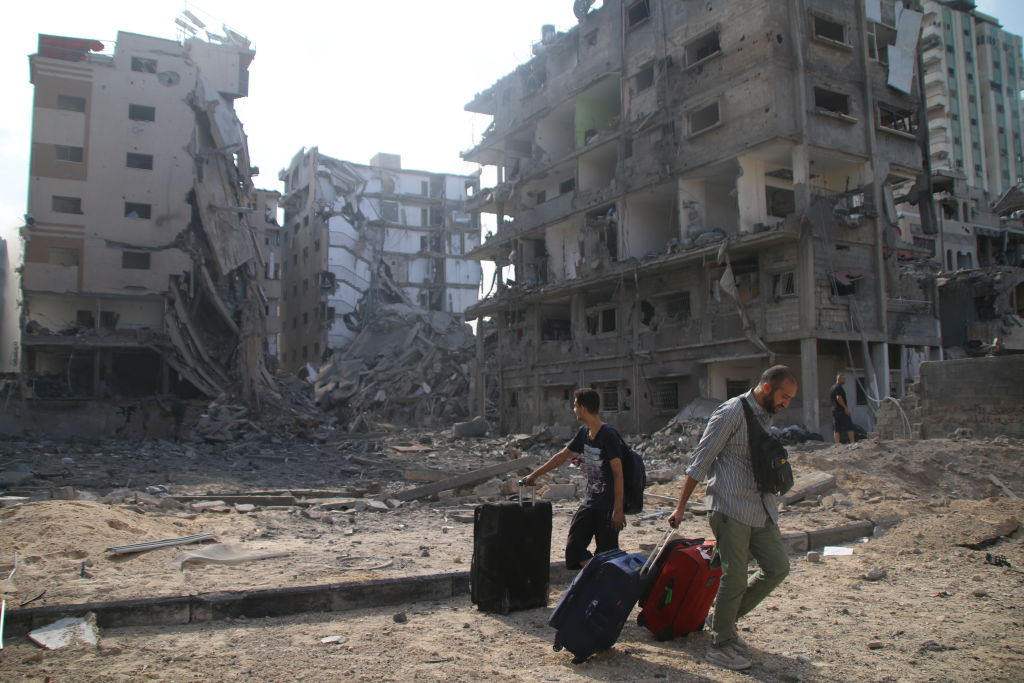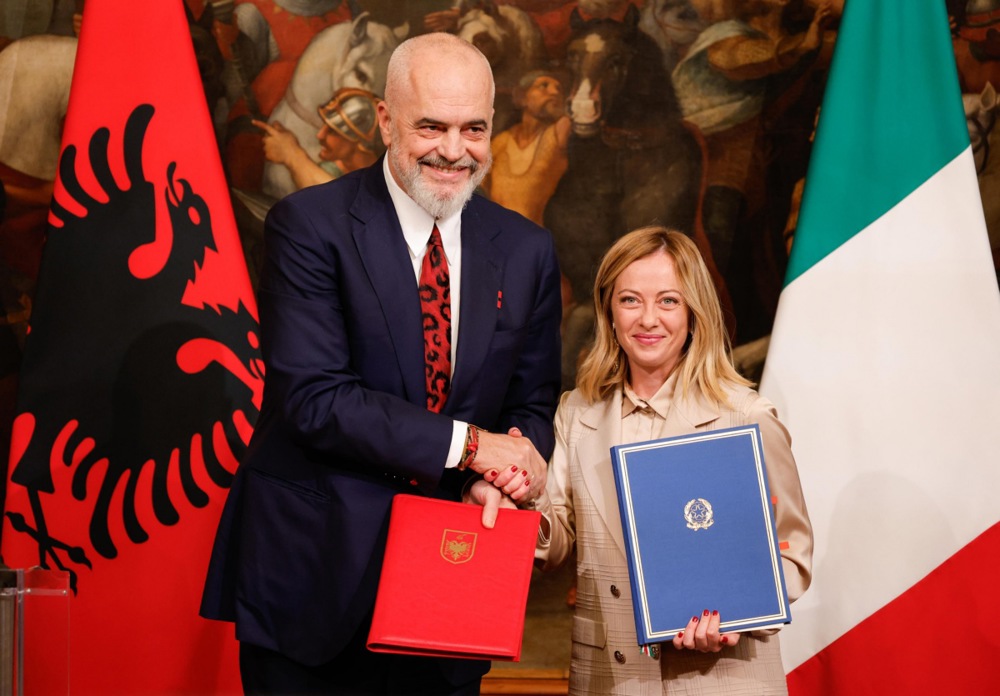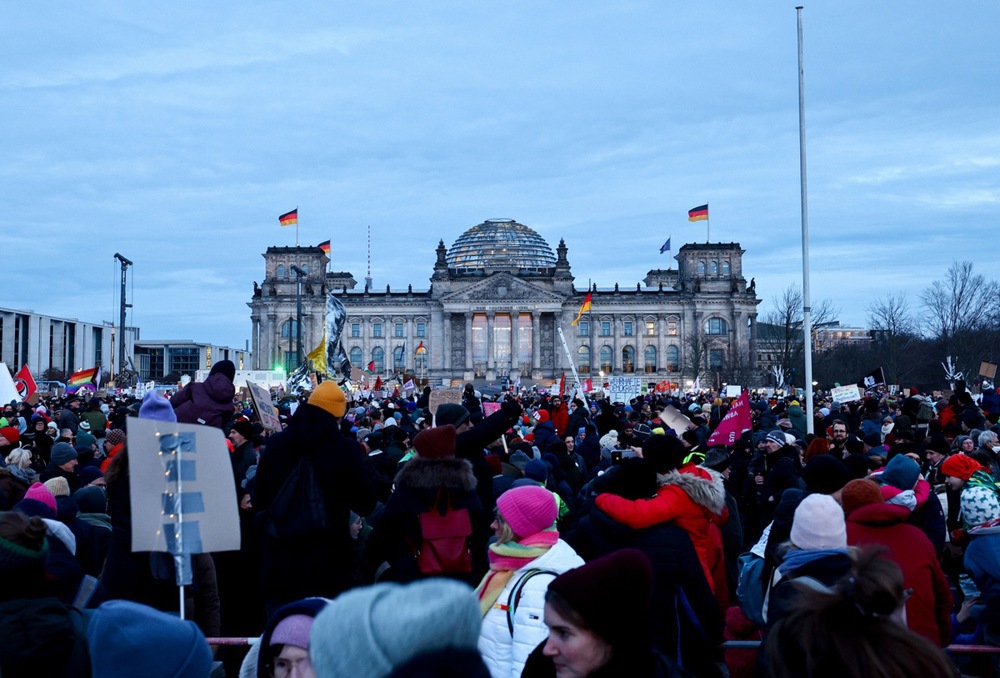The European Union is readying a €7.4 billion financial-aid package for Egypt, the Financial Times reported.
The bloc wants to help the Egyptian economy but also wants to curtail illegal migration via the North African country
Officially, the help is to provide economic support in light of the neighbouring war between Israel and Hamas and amid serious unrest in Sudan.
In reality, according to the FT report on March 13, the situation in Egypt could potentially lead to a huge new migration stream opening up towards Europe, which needs to be tackled.
The country is surrounded by conflict; aside from the Gaza-Israel fighting, Sudan, Ethiopia and Yemen are all experiencing serious violent civil unrest.
As a result, Egypt is teeming with migrants. Many fleeing the dangers in their homelands attempt to enter the safety of the EU via neighbouring Libya.
In late 2023, more than 317,000 Sudanese refugees arrived in Egypt in a short space of time, according to the High Commissioner for Refugees, the UNHCR. Almost all can barely cover their personal basic needs, if at all.
Nigeria receives 108 of its repatriated citizens from Libya as part of a concerted effort to reverse mass migration.https://t.co/gMJyJZUj3T
— Brussels Signal (@brusselssignal) June 8, 2023
Egypt already works closely with Brussels on the migration crisis. Still, even before the latest Hamas-driven conflict broke out on its Eastern border, the country was mired in debt and experiencing a major foreign-exchange crisis, raising serious questions about its medium-term stability.
In 2023, some 26,000 Egyptians applied for asylum in the EU.
Representatives from the bloc’s Member States have already formally approved the European Commission’s work on the aid agreement.
Due to political sensitivities, the package will not explicitly link EU funding to Egypt’s pledge to stop any further migration to Europe or a potential Palestinian inflow.
Instead, Brussels provides the euphemistic “explanation” that the agreement will strive to provide financial support to programmes that help Egypt create jobs and ease its energy transition.
The package aims to tackle the underlying reasons for illegal migration from Egypt and to support the country in accommodating refugees already there, hopefully reducing their incentive to try to travel to the EU.
It also includes plans for so-called “dignified return operations” and the beefing-up of security along the African country’s notoriously porous borders with Sudan and Libya.
Italian Prime Minister Giorgia Meloni unveiled her vision regarding Italy’s Africa relationships with the presentation of the “Mattei plan” – named after the late Enrico Mattei, who founded state oil company Eni. https://t.co/8BYAIDTTTI
— Brussels Signal (@brusselssignal) January 30, 2024
Details regarding the agreement, such as its total cost and where the necessary cash will come from, have not been made public.
Asked to clarify the situation, an EC spokesperson told Brussels Signal: “We don’t comment on media reports.”
For months, EC President Ursula von der Leyen and the administration of Italian Prime Minister Giorgia Meloni have been collaborating closely on the aid package.
To finalise and announce a deal, Von der Leyen is due to fly to Cairo on March 17 along with the Prime Ministers of Greece, Italy and Belgium.
Egypt has been in economic dire straits for a significant period and is receiving financial help from various international institutions to deal with the impact of the Gaza-Israel conflict and effects of the Russian-Ukraine war.
The IMF has expanded its loan programme to the African country to $8 billion, up from $3 billion, after a catastrophic decline in the value of the Egyptian currency.
Next to the pledged European money, Egypt will also receive $3 billion from the World Bank and $4 billion from Japan, the UK and others.
Additionally, it has a $35 billion deal with the UAE to develop Egypt’s Ras El-Hekma’s coastal zone in the North of the country, which is already receiving grants totalling $10 billion.
The EU deal with Egypt is one of many where the bloc, in essence, pays partner countries to try to keep migrants out.
Most attention has been focused on Tunisia, where the negotiations were particularly difficult amid problematic reports about human rights abuses.
Critics say the overall European strategy merely reflects the lack of an effective border surveillance system in the Mediterranean, which leaves the EU virtually dependent on third countries to guard against those wishing to cross its own borders.
Italian Prime Minister Giorgia Meloni has been pushing heavily for a military blockade in the Mediterranean since the recent arrival of thousands of migrants on the island of Lampedusa. https://t.co/S4JxsBBBdJ
— Brussels Signal (@brusselssignal) September 21, 2023





